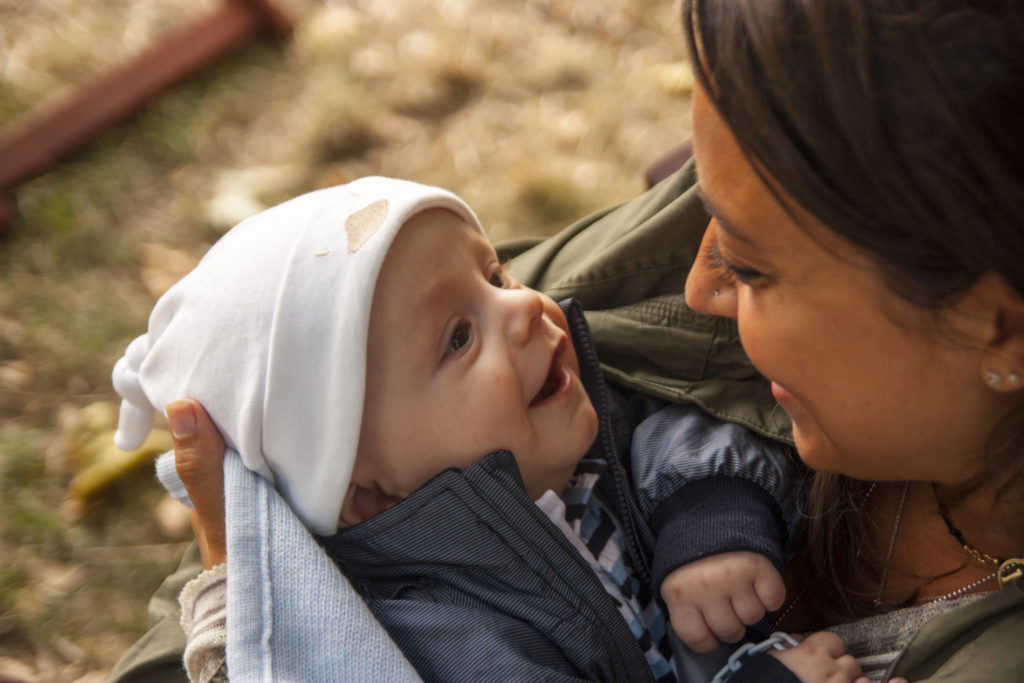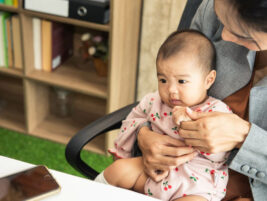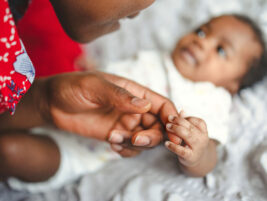‘… the sexuality of care so the children would be confident and safe during the night” (Michael Ondaatje, 2000)
Introduction
We suggest that in infant mental health some important concepts – those of parental sexuality, and infant sensual excitement and infant greed – are relatively neglected. We think this is a significant gap and we describe some manifestations. We also think that Infant Mental health therapists and classical psychoanalysts often seem to describe different theories about infant sexuality in the earliest years, although the former generally show more awareness of expressions of infant anger and rage (particularly in feeding difficulties). We are curious about this and invite readers to consider the implications and complexity these concepts add.
We would especially like to acknowledge Dr Ann Morgan’s contribution to this paper, as well as that of the Infancy Group of The Royal Children’s Hospital, Melbourne.
We define the terms briefly as follows and discuss them more fully in the course of the paper. By ‘parental sexuality’ we mean that quality in a parent of being sexual and capable of sexual feelings. By ‘infant sensual excitement’ we mean that quality of excited gratification that might have an intensely pleasurable if not an almost lusty quality to it. By ‘infant greed’ we refer to intense longing or desire such as in voracious eating and while Winnicott (1975) viewed greed as a normal part of human endowment, parents and therapists often view it more ambivalently. If the concepts of parental sexuality and infant sensual excitement and greed were more widely used, therapists could potentially gain access to a more resonant countertransference as well as a fuller understanding of the parents’ history and experience, and that of the infant. The baby as subject with his or her own intense desires would emerge more fully (Thomson Salo & Paul, 2007).
In reconsidering the psychoanalytic concept of infantile sexuality in the first year from an infant mental health perspective we suggest that the connection between the mother and the infant can be highly exciting for them both. This connection is needed to start the baby as a person off well. For the processes of separation-individuation and reflective thinking to fully take place, both mother and infant need to pull back from the other. The connection may have been erotic for the mother but the exciting and functional aspects of feeding need to be porously separate for her in particular. If she cannot make the turn back to the father, there may be a pull towards an intimacy with the infant that could border on being perverse (Welldon, 1980).
We do not discuss the contribution of environmental and genetic factors (such as the baby’s temperament and personality). We are also aware of the cultural limitations of our present perspective and nothing we say should be taken as blaming of parents.
When the care of infants has hindered a healthy investment in their bodies a number of important clinical consequences may follow. For example, with babies in Neonatal Intensive Care Units, the many traumatic oral interventions often lead to difficulty in feeding. If therapists recognise the totality of the infant’s bodily endowment, they could then focus on helping the infant find the excitement in feeding as much as on questions of technique and attachment. It may be helpful here to give a vignette of an infant with feeding difficulties. We return to feeding difficulties at the end of the paper.
Clinical vignette: Harry
Harry, aged 17 months, is the second son of a young couple whose respective families live overseas and interstate. The presenting problem was that Harry was solely breast-fed and took no other nutrition. He refused the bottle and other solids and he did not mouth objects or toys. Attempts to encourage him to feed orally other than with the breast were unsuccessful. His growth and development fell away dramatically at around 13 months of age. At the time when Harry started to lose weight, he was feeding at his mother’s breast constantly. He would have a breast feed up to 25 times each day. It seemed that both mother and infant were in a pattern where the breast was symbolic for everything: comfort, settling to sleep, food, closeness.
Perhaps for his mother the breast became a way of having him ‘disappear’. For Harry too, the breast was not an exciting, stimulating or nutritious source of energy or vitality or life, but also a way for him to plug himself up and disappear. Part of the task of the therapeutic intervention had been to try and help Harry develop some desire of his own. It seemed that his mother was missing aspects of an adult relationship with her husband that had previously been missing in their relationship. While there were aspects of the couple relationship that were not known or understood, it was known to be tense and difficult at times. The mother also felt very depressed at times. She seemed ambivalent about Harry (she may have wanted a girl). Harry’s father, during a feeding intervention when Harry was demanding the breast, made a joke about the ownership of the breasts – that they belonged to the father.
PARENTAL SEXUALITY
We only outline what has been observed of parental and infant sexuality, rather than their fantasies. A mother’s sexuality may be expressed towards her infant in her pleasure in breastfeeding, which can be highly exciting for them both, as Swain (2008) indicated in discussing neural circuitry. There is a surge of pleasure toward the baby from the mother which starts him or her off well. Babies who are cuddly and clinging in a moulding way are described as cute. Sometimes the contact with the baby where mother and baby are almost eating each other is highly sexualised; for the mother it may be more exciting and important than anything she experiences elsewhere. As Ann Morgan (23.4.08) said, “It is pretty powerful because it is private in the nursery.” Friedman (1996) noted that breastfeeding, with increases in oxytocin, involves not only pleasurable fantasies of fusion with the infant, but may also involve erotic or sadomasochistic fantasies of being tied down to an insatiable infant.
While novelists may describe a baby being the greatest love affair of a woman’s life, one father wrote, “I did feel some of my wife’s sensual needs were temporarily being fulfilled by the little one. The pair of them had a connection you could almost describe as erotic, it was so physical and intimate. Sometimes this rankled with me; mostly, however, I realised that everything was just as it should be” (Molitorisz, 2007, p. 23). The baby ‘excites her but frustrates – she mustn’t eat him or trade in sex with him’ – one reason she may ‘hate’ her baby (Winnicott, 1949, p. 74). Because of a mother’s preoccupation with her infant, she may initially be rejecting of the father.
Ann Morgan (4.9.07) elaborated the dilemma, “When there is a real connection between the mother and the infant, it is highly sexual – the dilemma is that the baby needs it, but what does the mother do with it? – because fundamentally she has to desexualise it. It starts with the sexual excitement on the mother’s part, and the baby has to give place to the father, and the father has to claim it back from the mother. For the mother, everything is sexual but she represses it. The only way for the mother to pull back is if she reawakens the sexual connection with the father. She needs to break it, to withdraw what is exciting, without upsetting her baby’s pleasure and mastery in the feeding and in his or her relationship to the body. The baby has to give it up and struggles with that, especially in the next 12 months. For the process of separation-individuation and the process of thinking to take place, both mother and baby need to pull back from the other. It is partly out of an awareness that if the baby is going to go into the world, they have to face giving it up.”
But there is a relative societal de-erotization of motherhood because of anxiety generated by the erotic mother-infant dyad (Mann, 1997. See also Lebovici & Kestemberg (1993) on the distinction between ‘sacred’ and erotic breasts).
The father’s sexuality and the baby
The father wishes to reclaim his wife sexually, and the couple often early express a wish to make another baby quickly. When the father comes between an over-close tie between mother and infant, that breaks that exciting connection.
James Herzog, a Boston psychoanalyst, discussing the way fathers interact preferentially with their babies, suggested they tended to be ‘over exciting’ and tossing the baby up in the air, catching them, tickling them, blowing raspberries, rubbing their beard over their belly (Herzog,1980). He also commented on the ordinariness of some sensual experiences that fathers may have in the handling of their own babies. This is rarely talked about although the Israeli psychoanalyst. Abigail Golomb (pers. com. 24.7.08) said that some fathers report becoming excited when witnessing breastfeeding.
Joshua aged 49, is the father of Daniel, a 14-month-old boy who was diagnosed with leukaemia and spent most of his life in and out of hospital. Joshua and Daniel’s mother were separated at the time of Daniel’s conception. Joshua visited occasionally as his two older children with the same mother lived with her. It was on one of these occasions that Daniel was conceived, outside the continuity of the earlier marital relationship. Daniel’s mother was preoccupied with caring for three other children and found it difficult to look after Daniel with his high level of medical needs. Joshua gave up his job and assumed primary responsibility for his son’s daily care. When asked why he had done this, he said, “My son, he is the product of my pleasure: he didn’t ask to be born but is my absolute responsibility.” For this father, the act of conception and the responsibilities that came with it are reinforced by the presence of his son. The sexual activity of his former wife and himself remained in his mind as he thought about his son.
Commentary on the ‘Baby Crazy’ video
Two fathers and their wives talk to the interviewer on video about the birth of their children. The first father is from an Italian background. He and his wife are a well-to-do, middle-class young couple who had done well in their careers. His wife explained how she really wanted to experience the pain of childbirth and to scream and yell out and let people know that she was having a baby, just like her grandmother and great-grandmother had done! The father was extremely proud and he talks about the birth of his son and watching him on the bed in the labour ward. He had been taking a video and someone had moved the nappy from under the boy’s genitals; he did a big wee, with urine streaming up into the air. His father exclaimed with glee, “It works just like his old man, look at him, just like his old man!”, as he commented on his son’s penis which had an erection at the time.
Another middle-class, well-educated couple talked about the birth of their first daughter. The father held her gently and kissed her on the head in a sensual sort of way. He related the process of watching her being born out of her mother’s body. He said he could see her head coming and then her body and feet. He then said, “I thought something was wrong! I wasn’t sure what it was! It looked like there was something missing! And then I realised that she was a girl!” At this point he looked very sheepish and cheeky as he made a joke about the anatomy of his daughter and how different it was from him. He was not shy about commenting on the sex and the physicality of his daughter’s body. Indeed when the couple were about to give the baby her first bath it was “daddy” who was going to do it. His wife and the nurses had prepared a bath and he dunked her gently in the water. His wife said, “Don’t forget to wash the good bits! They’re the good bits down there!”
At least then, it was not a problem for this couple to talk about their little girl’s genitals. For them the process of giving birth was still fresh in their minds and they were able to talk about sexual organs. After all, the father had been present during the birth and seen his baby daughter miraculously appear through the canal which had also been the source of her conception. They seemed to have a very comfortable loving relationship and it was in this context that they seemed comfortable to talk about genital sex, even in relation to their baby. These parents were also extremely proud of their baby daughter.
It seems in the context of this joyous excitement about their baby, sexuality is not a foreign or degrading concept, rather it is to be given respectful yet playful recognition as an essential part of life. It seems that both of these couples were comfortable with their own sexuality, making it easy for them to relate to all of their baby’s body in an accepting and creative way. These parents appeared well adjusted, thoughtful parents. Our hypothesis is that as they are able to adopt a healthy approach to their understanding of the whole of their baby’s body, including their aggression and sensuality, their son and their daughter will have a more integrated and manageable handle on their own ‘drives’.
INFANT SENSUAL EXCITEMENT
Infant sensual excitement in the first year is not often reported, although there is less difficulty acknowledging sexuality in the second and third year. ‘Babies are wonderfully sensual beings: delicious, soft, cuddly, kissable, touchable, and after two months full of smiles, giggles, and gurgles. They play and tease and suck contentedly.’ (Diamond et al, 2007.) With gaze, the opioids kick in, making it one of the most powerful experiences. This basis in sensual excitement can be so intense – the love in the infant’s eyes by 4 months of age can be almost embarrassing for an observer. Sensual excitement in the whole of the infant’s body is different from that in masturbation as there is the joy of finding the othe
i) Skin erotism
The mother’s ‘sensual enveloping stimulation awakens the infant’s sexuality … playing, patting, stroking, diapering, cuddling, clinging, kissing and holding and gazing’ (Diamond et al, 2007: pp.9, 16). The infant’s desire is reignited by the mothers’ enjoyment of caring for their body, particularly the erogenous zone of the skin
ii) Breastfeeding
The intense pleasure that can be present when the infant is held to feed by his or her mother is sometimes whitewashed, as for example when it is referred to as ‘nursing’. This is not to devalue bottle-feeding, but rather that we are tracing one particular line of bodily sensuality. Babies can suck just as lustily and greedily at the bottle.
Feeding is an interaction between two people. Winnicott described the breastfeed from the baby’s perspective: ‘The baby eventually gets the illusion that this real breast is exactly the thing that was created out of need, greed and the first impulse of primitive loving. Sight, smell and taste register somewhere, and after a while the baby may be creating something like the very breast that the mother has to offer’ (1964, p. 90). A 6-month-old baby was described by his mother as “being into her breasts” as if it was sexual. One baby who fed at the breast with excited, almost ecstatic sucking, her eyes almost closed, was observed to become a sensual, wriggly toddler. (We do not discuss excited biting at the breast where the overlap with the baby’s aggressive wishes may be more easily observed.)
A mother’s enjoyment of breast-feeding
But for the mother, breast-feeding may have a similar powerful sexual, sensual set of associations. How does she accommodate these feelings without feeling guilt or that the act of breast-feeding is forbidden or dirty? For women who have been sexually abused, however, and that may be a significant percentage of mothers who are referred for therapeutic intervention, the breasts may be inextricably caught up with the experience of earlier abuse, with resulting shame and confusion.
iii) Sensual thumb sucking
While many babies use thumb sucking as a comfort to ground themselves, we rarely hear of very young babies engaging in sensual thumb sucking, apart from Piontelli’s (1992) account of the foetus who was observed licking the placenta, and after birth sucked her thumb with a passion close to that of a love affair.
iv) Masturbation
Therapists and infant observers rarely report masturbation in first year but at some point then babies usually discover their genitals and if they have the opportunity will explore them with pleasure, touching and rubbing them. Fonagy (2008) reported a survey in which all the boys’ mothers reported erections in their sons from birth onwards and 80% of the mothers of girls reported genital excitement in their daughters from 3-6 months onwards. One observer noticed that 6-month-old babies clearly enjoy being massaged around the scrotum in a way that was different from being massaged elsewhere. Another mother reported that her 12-month-old son, while on the breast having “a lovely time playing with the nipple”, would often reach down to his genitals to fondle them with a look of delight. And Ben Bradley (pers. comm 23.4.08) reported an 8-month-old girl in one of his babies trio groups who while looking at a boy with desire would swiftly reach her hand down to her genitals, with a sense of this being somehow sexual. Fonagy (2008) suggested that mothers do not mirror or mark sexual excitement, unlike the way they may mark other emotions. Presumably this is part of reining back the sensual ‘surge’ which can be safely contained in a discreet way in breastfeeding.
v) Giggling, tickling, driving the infant to a climax of excitement
At times this may seem to have an intensity consistent with an orgasm. Sometimes watching a person being tickled leaves the onlooker feeling very uncomfortable. Is this sometimes the case with babies being tickled? Are we projecting into this situation something sexual? Is it likely to be sensual, of the order of intensity of an adult experiencing a climax of sensation?
INFANT GREED
Do therapists view greed pejoratively as negative, as one of the ‘seven deadly sins’? A parent recently expressed the view that she was so desperate to have a baby, to have someone to be with, love and care for, that her desire felt bad. It was as if her greed and selfishness in wanting to have a baby constituted a sin in itself.
Winnicott (1975) viewed greed as part of positive normal human endowment and mothers sometimes do, too, seeing it as ‘good’. Greed could be viewed as a lust for life, as potentially life-enhancing, and as part of a baby’s passionate endowment and wanting to be related to others. Antoine Guedeney, (pers. comm., Aug 2008), saw it as ‘good’ aggression.
In discussion with the author, Alexander McCall Smith, regarding his character, Bertie, he reminded us that the mother said, “When you were a little baby yourself – and remember, that’s just six short years ago – yes! 6 – you tended to be – how shall we put it? – guzzley.. and you bit mummy a little hard, making mummy a little tender. You don’t remember that, do you? (McCall Smith, 2007).”
Discussion
While the Infant Mental Health ‘baby’ is often viewed as arriving as if born with many remarkable cognitive capacities (which Liam O’Connor (pers. comm.) once referred to as having an Apple Mac quality), this is different from the sexuality which the classical psychoanalytic orientations view the infant as possessing, and from the sensuality explored here.
If infants enjoy breastfeeding and enjoy their body generally, this would be a good basis for their sense of identity, self esteem and enjoyable sexuality. The British psychoanalyst, Rosine Perelberg (2007), wrote that, “The ‘right’ amount of erotism is crucial, so that it is not too much, overexciting the child, or too little, without an erotic investment for the baby, which is also so crucial for its relationship with its own body.”
A ‘sensual-sexual system’ has been suggested to operate in the first year as a signal system that helps in building secure attachment (Diamond, Blatt & Lichtenberg, 2007). And Lichtenstein (1977), linking sensuality with identity, wrote: ‘The ‘non-procreative sexuality’ with its emotional eroticism between mother and infant helps the creating of the child’s identity through the heightened sense of being that comes with sensual experience.’ Some therapists suggest a bidirectional influence between sexuality and attachment. Security or insecurity in one system affects the other system (Holmes, 2007; Lieberman, 2007).
It often seems easier to see the relational aspect of babies’ dyadic and triadic relationships, rather than their sensual nature in their passionate attachment: “I need and love YOU.” One father asked the Maternal and Child Health Nurse if his 4-month-old son could be jealous of the parents “being intimate” – when the baby was lying on the bed beside his parents he cried loudly whenever his father touched his wife’s breasts (McWilliams, pers. comm.14.8.07). Male observers have reported 15-week-old girl babies acting flirtatiously with them. And while gender often seems relatively ignored in Infant Mental Health in the first year, yet by 6 months there is often a difference in the quality of the sensual excitement with which babies respond to adults.
More resonant countertransference and a fuller understanding
Being more aware of parental sexuality, infant sensual excitement and infant greed can lead to a more nuanced view of the parents’ and infant’s history and development. Therapists are less likely to feel that some infant sensual manifestations are inexplicable or just ‘autoerotism’. A medical practitioner did not want to think about having seen a mother apparently absent-mindedly gain pleasure in rubbing her 10-month-old daughter’s genitals when cleaning them. But if we can think about it, we might understand better the experience parent and infant share.
Greater awareness of parental sexuality, infantile sensuality and greed help attune more accurately to our countertransference and to interpret from it. For example, the child psychotherapist, Stella Acquarone (1987), described having sexual thoughts about a tiny baby and using these to frame an interpretation which reached the mother affectively and began a helpful intervention. Baby Janet was 5 days old, did not want to feed and was losing weight. Acquarone looked at the baby and thought, ‘What a sexy face!’ which she decided to say. The mother asked, with tears in her eyes, if this was normal and said that from the moment the baby started sucking her breast, she felt very aroused sexually which was a very confusing experience, and full of frustration. She would reject the baby and felt the baby hated and rejected her in turn and refused to suck from the breast. Acquarone thought the mother was very vulnerable and felt like cuddling her, and suggested that perhaps she would like to be held and cuddled. Acquarone also suggested that perhaps the baby was experiencing the same sexual feelings as her mother. The baby immediately started to feed better and both mother and infant began to enjoy breastfeeding. The Health Visitor reported that the mother’s understanding of her infant increased.
If an infant is viewed as inherently joyfully sensual, the driven or defensive nature of some symptoms might be understood differently. “What is important is the separation of the child from the mother, it’s got to be from a sexual base – it excites them together. The baby doesn’t think of it as sexual, it’s the connection with, and the joy in the body and the nipple in the mouth which is climactic, and both have to give it up. The absolutely dynamic and important way that separation comes about – how do you separate but still love and be loved? One mother said, ‘It’s so, so, so frightening’” (Morgan, pers. comm. Dec 2007).
An infant who feels desperate because of separation anxiety or abuse might use sensuality defensively to preserve the possibility of health. A baby boy only sucked from one breast for 18 months as a way of coping with his anxiety. If infants get stuck in an autoerotic pattern (such as sucking their own tongue or skin) this may be a way of staying emotionally alive until therapy is available (see McDougall, 2000, in connection with adult patients).
What can go wrong?
Depression attacks the excitement in the other. If the mother is not in love with her infant and the infant with the mother, they do not feel close and the infant turns away. If the infant does not expect this pleasure with the mother, feelings are dampened down and the interaction becomes asexual. This disappointment with the mother may affect later sexuality.
The British analyst, Malcolm Pine (1985), discussed a link with false self development. ‘Depressed mothers can only reflect a joyless lifelessness and, unable to mirror other feelings, may evoke in response from the infant a false self, which is depressed in compliance with the mother….. Later on in life this split between the true and false self may appear in the form of sexual difficulties…. The “true self” core may cry out for recognition, often through a symptom of sexual difficulty in which exists the sex that speaks for the buried central lost self (p. 24)’.
Motherhood may open the door for a woman to experience a perverse development, to use the infant, whether male or female, as a sexual object with which to excite herself. If she cannot make the turn back to the father, she may become stuck in a perverse state of mind. (Welldon, 1980). It is possible that the erections that some fathers’ experience around their newborn babies, as reported by Fonagy (2008), may also open a similar door.
How are the concepts of sensuality and greed helpful with serious feeding difficulties?
A mother shows her love for her baby in the experience of feeding him or her. When there are feeding difficulties, the fate of the baby’s erotism is crucial. Being more aware of this may give us additional ways of intervening:
– One mother, for example, asked why her baby did not drink from the bottle. The therapist said “Why would he? He is missing the softness and pleasure of the breast” and his mother said, “Good boy”, patting him and the difficulties eased (Meehan, pers comm, 2007).
– When mothers experience shame, disgust, anxiety, rejection, impatience and anger during breastfeeding, therapists may aim to help them develop some pleasure. As part of an intervention we might convey that breastfeeding could be enjoyable, implicitly holding out hope that it might be possible in the future.
– An important clinical application is with babies in Neonatal Intensive and Special Care Units, whose sensual excitement and greed are often affected. The handling that they have received may have prevented or distorted healthy investment in their bodies: they may have experienced many traumatic procedures to their mouths, and when expected to breastfeed show little excitement which often leads to difficulty in feeding. Rather than focus on questions of technique, such as latching on, therapists could focus on helping the infant find the excitement in their mouths and in feeding. “The infant who is on a nasogastric tube does not have to work for the feed which normally results in the turn to the mother. With a tube, it is too hard to make this turn to the mother and (as with masturbation) the infant does not have to think of, and rely on, the other” (Morgan, pers. comm. Dec 2007).
– One important clinical consequence is a mother’s difficulty in experiencing pleasure in breastfeeding an infant with a birth defect in the sexual organs.
Other issues
– Another important clinical consequence might be the impact of a parent’s distorted sexuality and aggression on their infant’s sense of gender identification contributing to gender identity disorder. (See Coates & Moore [1997] on the development of gender identity disorder.)
– Other extreme examples of when parents’ distortions of sexuality directly impinge on the infant include mothers with a history of having been sexually abused who become extremely anxious about their newborn baby’s sexuality, projecting distorted ideas directly into the moment-to-moment care of their infant. One mother became emotionally detached from her infant and developed a severe obsessive compulsive disorder with frequent checking and rubbing of her daughter’s genitals. This girl’s sense of self was significantly disrupted.
Attachment is lifesaving, but to ignore the sexuality of the infant and their parents is to do so at their peril. This is not to say that we must talk about sexuality without discernment! Or we may not talk about it at all with some infants and their families. However, it must be something that is available to be used within the space of the mind of the therapist. In infant-parent therapy, we need not necessarily act upon these apparent desires of the baby and parents, although sometimes connecting with an infant, facilitating his or her sense of aggression or excitement or arousal in the presence of the parent may be most helpful. The psychoanalyst, Antonino Ferro (pers. comm., 2008), described an analogy of the therapist’s mind as a kitchen where many things slush around in various states of preparation but the therapy work itself is out the front restaurant, where a properly thought-about and prepared meal is presented to the diner. So we should be able to reflect upon the issue of sexuality in a way that is helpful to the infant and the parent.
Conclusion
Infants need a healthy concept of their own body developing from the beginning. This means allowing for their own feelings of excitement, exuberance, aggression, sensuality and sexuality. These feelings should be able to be experienced and accommodated, not feared, repressed and subject to re-emergence later in the course of development. They should be able to be accommodated in a way that desire is not experienced as disorganising (or as sinful). Therefore, including these concepts in our approach is not only an academic exercise. Rather, it should be helpful for infants and their parents as they battle the ups and downs of development in a world where sexuality and aggression are responded to with intense ambivalence and, where there is profound duplicity, with even more shocking results. If we avoid the concept of sexuality in our work with infants and parents, it could leave the parents with an unnecessary burden, which is not expressed and not able to be worked through. This may also leave the infant with a distorted sexuality projected into them. Repression of the excitement, greed and related feelings, similarly as with repression of ‘drives’, is not necessarily in the service of the individual and society.
To summarize, being more aware of the concepts of parental sexuality, and infant sensual excitement and infant greed and how they affect infant and parents in mutually reinforcing ways, both positively and negatively, could extend our understanding and assessment, particularly information coming to us from our emotional responses and countertransference. In this way it could help us design interventions that might be experienced as not only more helpful but also more empathically resonant with the whole person of the infant and their parents.
References
Acquarone, S. (1987). Psychotherapeutic interventions in cases of impaired mother/infant relationships. Journal of Child Psychotherapy, 13: 45-64.
Coates, SW, Moore, MS. (1997). The Complexity of Early Trauma: Representation and Transformation. Psychoanalytic Inquiry.
Diamond D, Blatt S, Lichtenberg J. (Eds). (2007). Attachment and sexuality. NY, London: The Analytic Press .
Fonagy, P. (2008). A genuinely developmental theory of sexual excitement and its implications for psychoanalytic technique. J Am Psychoanal Assoc: 56: 11-36.
Friedman. M. E. (1996). Mother’s Milk: A Psychoanalyst Looks at Breastfeeding. Psychoanalytic Study of the Child, 51: 475-490.
Holmes J. (2007). Sense and sensuality: Hedonic intersubjectivity and the erotic imagination. In: (Eds.) D Diamond, S Blatt, J. Lichtenberg. Attachment and sexuality. NY, London: The Analytic Press, Ch 5 137-159.
Lebovici, S. & Kestemberg, E. (1993). The breast or breasts. Journal Child Psychotherapy. 19: 5 – 13.
Lichtenstein, H. (1977). The dilemma of human identity. New York: Jason Aronson.
Mann, D. (1997). Psychotherapy: An erotic relationship. Transference and Countertransference passions. London: Routledge.
Molitorisz, S. (2007) Sunday Life, The Sunday Age Magazine July 22, 2007. pp 21- 23.
McDougall, J. (2000). Sexuality and the Neosexual. Mod. Psychoanal., 25:155-166.
Ondaatje, M. (2000). Anil’s ghost. New York: Alfred A. Knopf..
Perelberg, R. (2007). Space and time. Paper given at British Psychoanalytic Society meeting.
Pine, M. (1985). Mirroring and Child Development. Psychoanalytic Inquiry, 5: 211-231.
Piontelli, A. (1992). From fetus to child. An observational and psychoanalytic study. Tavistock/Routledge, London and New York.
Swain, J. (2008). Brain basis of parent-infant bonding: Primary parental preoccupation: Reorganisation of circuits involved in worry, reward and habit formation. Paper presented at 11th World Congress, World Association of Infant Mental Health, Yokohama.
Thomson Salo, F. & Paul, C. (2007). The baby as subject: New directions in infant-parent therapy from The Royal Children’s Hospital, Melbourne. Second edition. 2007 Melbourne, Australia: Stonnington Press.
Townsend, H. Baby Crazy (video).
Welldon, E. (1980). Mother, madonna, whore. The Idealization and Degradation of Motherhood. New York and London: The Guilford Press..
Winnicott, D.W. (1947) Further thoughts on babies as persons. Chap. 13. in The Child, the Family, and the Outside World. (1964). Harmondsworth: Penguin.
Winnicott, D. W. (1949). Hate in the countertransference. Hate in the Counter-Transference. Int. J. Psycho-Anal., 30:69-74.
Winnicott, D. W. (1964). Chapter 13, Further thoughts on babies as persons. In, The child, the family, and the outside world. London: Penguin Books.
Winnicott, D.W. (1975) Through Paediatrics to Psycho-Analysis. The International Psycho-Analytical Library, 100:1-325. London: The Hogarth Press and the Institute of Psycho-Analysis.
Authors
Thomson Salo, Frances,
Infant Mental Health Group,
The University of Melbourne,
Paul, Campbell,
Murdoch Children’s Research Institute,
Department of Psychiatry,
University of Melbourne,
Australia








